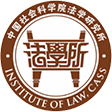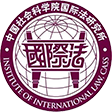 字号:
字号:小
中
大

Editor’s note: Liu Huawen is the executive director of the Center for Human Rights Studies under the Chinese Academy of Social Sciences. The article reflects the author’s views and not necessarily those of CGTN.
After four decades of reform and opening-up, China has undergone tremendous changes. The country has developed from one that solves people's food and clothing problems to the world's second-largest economy with rapid and high-level development.
The country attended the universal periodic review of the UN Human Rights Council in 2018 for the third time.
During the deliberation process, more than 120 countries fully affirmed China's great achievements in promoting and safeguarding human rights, and highly valued the concepts and practices of human rights with Chinese characteristics.
In sharp contrast, the representatives of the Western countries and the Western media still have not given up or changed their attitudes and practices in accusing China, especially repeatedly referring to the so-called human rights issues in China's Xinjiang Uygur Autonomous Region and Tibet Autonomous Region.

UN High Commissioner for Human Rights Michelle Bachelet (C) is to deliver her annual report before the UN Human right council members in Geneva, March 6, 2019. /VCG Photo
This is due to a lack of an accurate understanding of China's development.
First of all, China's growth is comprehensive in the sectors of political, economic, cultural, social and ecological progress.
Second, China's nationwide development includes Xinjiang and Tibet as more attention and investment have been provided to such areas, where economic development is relatively backward due to historical and geographical reasons. Assistance in funding, technology and manpower have also gathered to the two Regions from other provinces all the time.
Therefore, the speed of economic development and social progress of the ethnic minority areas, including Xinjiang and Tibet, have exceeded the average rate of development across the country.
Human rights advances in Xinjiang and Tibet are comprehensive, which includes many aspects such as political, economic, cultural and social rights. However, Western countries or the Western media ignore these developments, focus only on traditional civil and political rights, merely pay attention to hearsay cases, and very often politicize and mislabel human rights issues.
They are not only biased, and subjective but have also neglected the unremitting efforts China has made to develop human rights.
The realization of human rights is a common pursuit of people around the world. Every country has goals and responsibilities for promoting human rights, but the path and method to achieve these goals are tailored to different conditions.
As Antonio Guterres, the UN secretary-general said, when the world is becoming increasingly uncertain and dangerous, human rights protection has encountered unprecedented challenges.

A class in Karamay, Xinjiang Uygur Autonomous Region, March 9, 2019. /VCG Photo
This can be proved by the fact that Western countries are also facing some challenges in human rights protection, such as the issue of gun abuse, money politics, and the gap between the rich and the poor in the United States, while many developing countries face problems such as how to develop the economy, improve people's livelihood, and improve the rule of law.
Such problems can be alleviated through international constructive exchanges and cooperation. However, the accusation that is lack of factual basis and with political hostility is even less constructive and is against the trend of international human rights exchanges and cooperation.
China is a large developing country that is overcoming many difficulties and achieving economic development and social progress. It is unfair to deny the human rights achievements of China as a whole and Tibet and Xinjiang as parts of the country.
China is willing to engage in constructive dialogue and cooperation with other countries and contribute to the development of other countries. Incorrect criticism and accusations will not shake China's determination and confidence in the event of human rights.
China will, as always, support the multilateral mechanisms to play an active role in supporting true communication and understanding among different countries in the international arena.
Western countries should lay down stereotypes and prejudice, and thoughtfully and responsibly treat the human rights issues of other countries and acknowledge the tremendous efforts made to realize human rights.
Isn't it a human rights spirit to respect the dignity of other countries and their people?
(From:CGTN)



